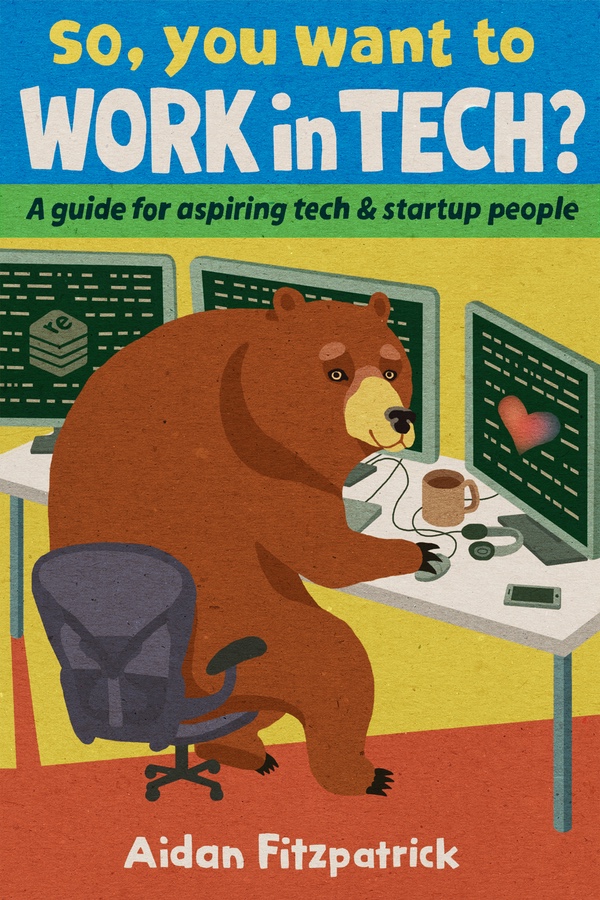How to quit
, 1,185 words

This article is part of a series of guides related to "So, you want to work in tech?".
There are many poor reasons for leaving a role, and only a few good ones. Being open with your line manager about dissatisfaction is important; just as they should not be trying to surprise you with any negative feedback, you shouldn't surprise them with something like this.
If you're unsure whether to quit or are already on the way out, think about what Elbert Hubbard wrote.
If you work for a man, in heaven's name work for him!
If he pays you wages that supply you your bread and butter, work for him—speak well of him, think well of him, stand by him and stand by the institution he represents.
If put to the pinch, an ounce of loyalty is worth a pound of cleverness.
If you must vilify, condemn and eternally disparage, why, resign your position and, when you are outside, damn to your heart's content. But, I pray you, so long as you are a part of an institution, do not condemn it. Not that you will injure the institution—not that—but when you disparage the concern of which you are a part, you disparage yourself.
- Elbert Hubbard in a 1902 article
Quitting well is a fine thing, and it should be widely taught. Consider these:
-
Understand when to quit. The right time is after you have discussed whatever concerns you have at length with your boss, and worked with them to address them. After all, they hired you because they wanted you, and you went to work for them because you wanted to be there. Rather than starting again with a new employer, it's time to be candid and open. If you're unhappy it is better explained than left to brew, and open communication cures many ills. What you see as a big thing may be a misunderstanding, or something that is easily changed.
-
When you're at your most upset or angry, don't rush to react. Write it down, think about it, and sleep on it. If you act on the spur of the moment you may regret your decision later, and you may bungle your delivery of the message and come across as overly emotional. Take the emotion out of it.
-
If it is likely to be controversial -- or if there's a strong disagreement -- take counsel from others. Discuss it with your mentor, or whoever is most experienced. You can be sure your manager will be getting second opinions, so you should make sure you test your reasonability, too.

-
Be clear why you're quitting. If you might get nervous or jumbled, bring some clear notes with you.
-
Never ever ever tell your colleagues that you've quit or are quitting. It undermines you, makes you seems emotional to colleagues, and it nails your colours to the mast. You then can't back down without losing face, and it might make it harder for your boss to make amends. It may also really piss your boss off. How can your boss make a counter-offer without it being obvious to your colleagues, potentially causing resentment?
-
Do it in person. Slack, Email, Skype and phone calls leave too much to be misunderstood.
-
Respect any confidentiality and non-compete agreements you might have. If you've acquired a lot of valuable knowledge that you want to use, remember that a condition for your originally getting job, learning the knowledge, and getting paid all that time was that you agreed to whichever clauses were in the contract.
You may think that your former employers were warm and fuzzy, but if they have an intellectual-property based business they will injunct or sue you if you disclose their data. Even if your boss doesn't want to, and even if you don't have a lot of money to be sued for, the board of directors have a legal obligation to the company's investors to protect the company's property. The directors stand to be sued themselves by the company's investors if they don't pursue it. IP based businesses have nothing if they cannot protect their IP, and any company will protect its commercial data.
In a prior business I have seen a former employee casually send a spreadsheet of contract data to a new employer, resulting in a dawn police raid on their house and offices, their family's IT equipment being impounded, a multi-million pound fine being imposed by a court, and ultimately a personal bankruptcy. Another time I've seen it lead to a prison sentence. IP theft from employers is no joke.
-
Respect your notice. You have a greater commitment to your current employer than your next one. The next employer will usually want you to start tomorrow, but by observing a notice you demonstrate to the new team that you take your commitments seriously, and it reinforces how valuable you've made yourself to the current employer.
-
Goodwill with notice goes a long way. Why not be open and try to agree something that will help both you and your boss? They might want you until they have found a replacement, and in return for staying a bit longer, they might be able to recommend or refer you to an even better job than you could get without their support. Alternately, they might let you go sooner if you race to hit an objective.
-
Be cool. Your boss doesn't really hate you. Leave friends behind, not enemies. The industry is a small place. I've hired former bosses, and I've been hired by former employees. It goes around. Being dickish to anyone -- however justified it feels at the time -- is never worth it. Build your network.
When I was the lowliest of engineers at the start of my career, I remember going to a very senior colleague's leaving drinks. He refused to let me buy him a drink, and insisted on buying me one. He took me to one side and told me that in five years I'd end up hiring him myself. The guy was a wizard, with skills way beyond mine, and I was as bewildered as I was flattered.
Sure enough, something similar came to pass in the years that followed, and his words stayed with me.
Another time, I'd hired a junior engineer who was new to the country. After some years we'd both moved on, but I introduced him to an entrepreneur who had pitched to me. They partnered up and are now co-founders at a top-tier UK funded startup.
You never know. Be nice.
April 2016 update: This article and some others I've written appear in a short book, "So, you want to work in tech?". The book is available on iTunes (free) and Amazon (paid).
